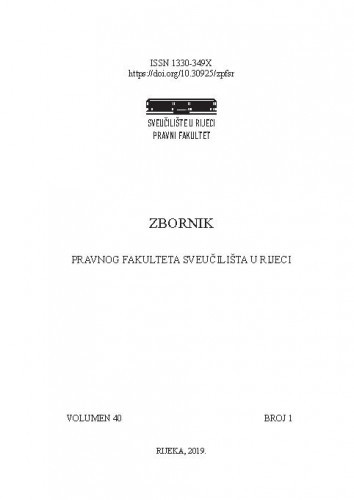U ovom radu analizirat će se nacrt novele Zakona o parničnom postupku iz 2016. godine koji je usmjeren k važnim izmjenama u pogledu instituta revizije kako bi se Vrhovnom sudu Republike Hrvatske osiguralo ispunjavanje njegove javne funkcije - osiguranja jedinstvene primjene prava i ravnopravnosti svih u njegovoj primjeni. U svezi s time defi nirana je uloga Vrhovnog suda prema Ustavu Republike Hrvatske, ali i kroz shvaćanja Europskog suda za ljudska prava. S obzirom na temu rada, analiziran je razvoj instituta revizije kao izvanrednog pravnog lijeka kroz povijest hrvatskoga zakonodavstva te je ukazano na probleme koji postoje u sadašnjem uređenju. Razlog nužnosti promjena u pogledu revizije je preopterećenost Vrhovnog suda zbog pristizanja velikog boja revizijskih predmeta uz istodobno postojanje ogromnih zaostataka u dosadašnjem radu. Razlog zbog kojega su protivnici ove reforme toliko brojni je promjena paradigme u određenju uloge i funkcije Vrhovnog suda iz privatne u javnu funkciju čime bi Sud odlučivao samo o pravnim pitanjima u javnome interesu. Upravo zbog promjene paradigme, došlo bi do ukidanja dvostrukog kolosijeka u režimu revizije te bi bila propisana samo, tzv. revizija po dopuštenju. Predložene izmjene proučavane su kroz prizmu slovenskoga zakonodavstva koje je slične reforme provelo 2008. godine, a zbog sličnosti dvaju sustava pogodno je za usporedbu i predviđanja rezultata koji bi trebali uslijediti i u Republici Hrvatskoj.; In this paper, a draft of the 2016 Law on Civil Procedure will be analyzed, focusing on significant changes to the audit institute to ensure that the Supreme Court of the Republic of Croatia ensures the fulfillment of its public function - ensuring the uniform application of the rights and equality of all in its use. In this regard, the role of the Supreme Court was defined according to the Constitution of the Republic of Croatia, but also through the notions of the European Court of Human Rights. Considering the topic of work, the development of the audit institute as an extraordinary legal remedy has been analyzed through the history of Croatian legislation and pointed to the problems that exist in the current arrangement. The reason for the necessity of revising the audit is overwork by the Supreme Court because of the large number of the audit subjects at the same time as the existence of huge backlogs in the work so far. The reason why opponents of this reform are so numerous is the change of the paradigm in determining the role and function of the Supreme Court from private to public function, which would make the Court decide only on legal issues in the public interest. Properly to the paradigm change, there would be a two-way revocation in the revision regime and only the so-called”Revision by Permission” could be legitimate. The proposed changes have been studied through the prism of Slovenian legislation, similar to the reforms carried out in 2008, and due to the similarity of the two systems, it is appropriate to compare and predict the results that should follow in the Republic of Croatia.
Sažetak

 Zbornik Pravnog fakulteta Sveučilišta u Rijeci : 40,1(2019) / glavni urednik Željko Bartulović.
Zbornik Pravnog fakulteta Sveučilišta u Rijeci : 40,1(2019) / glavni urednik Željko Bartulović.